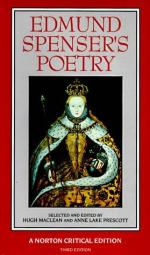|
This section contains 6,900 words (approx. 23 pages at 300 words per page) |

|
SOURCE: "Book II: The Renaissance—The Pagan Renaissance," in History of English Literature, Henry Holt and Company, 1889, pp. 227-49.
Below, Taine attributes the flourishing of Renaissance thought and art in England to English peace and prosperity, the demise of feudalism, and the release from the domination of the Catholic Church. Taine argues that the spirit of cultural renewal pervaded all social strata and fostered artistic and literary interest in Greek and Roman culture.
For seventeen centuries a deep and sad thought had weighed upon the spirit of man, first to overwhelm it, then to exalt and to weaken it, never loosing its hold throughout this long space of time. It was the idea of the weakness and decay of the human race. Greek corruption, Roman oppression, and the dissolution of the ancient world, had given rise to it; it, in its turn, had produced a stoical resignation, an...
|
This section contains 6,900 words (approx. 23 pages at 300 words per page) |

|


